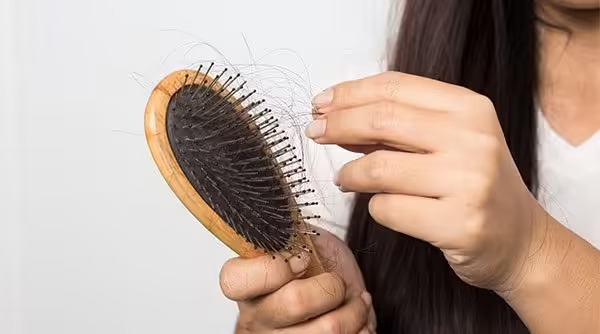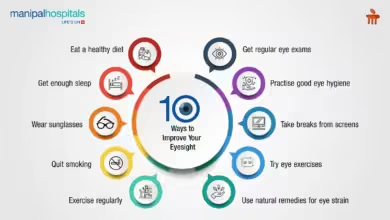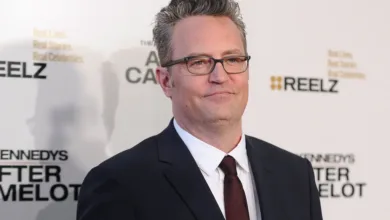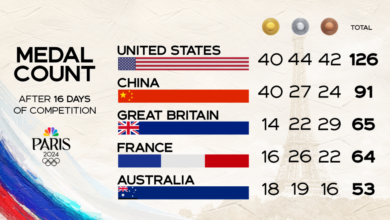Top 10 Effective Hair Care Tips to Prevent Hair Fall Naturally
"How to Prevent Hair Fall: Best Hair Care Routine and Natural Remedies"

How to Take Care of Your Hair and Prevent Hair Fall: A Comprehensive Guide
Hair is often considered a person’s crowning glory, and its health plays a major role in how we look and feel. Healthy hair not only enhances beauty but also signifies good overall health. However, one of the most common concerns is hair fall, which can be caused by various factors such as genetics, stress, poor diet, and improper hair care routines. The good news is, with proper care and attention, it is possible to reduce hair fall and promote healthy hair growth.
In this article, we will explore the causes of hair fall and share practical tips on how to take care of your hair and prevent unnecessary shedding.
Understanding Hair Fall: Common Causes
Before jumping into prevention methods, it’s essential to understand why hair falls out in the first place. The average person loses about 50-100 hairs per day, which is considered normal. However, excessive hair loss can be caused by:
- Genetics: Hereditary hair loss, also known as androgenetic alopecia, is one of the most common reasons for hair thinning and hair fall in both men and women.
- Hormonal Changes: Pregnancy, menopause, thyroid issues, or birth control pills can cause hormonal imbalances that lead to hair loss.
- Stress: Physical or emotional stress can push hair follicles into a resting phase, causing hair to fall out more easily.
- Poor Diet: A diet lacking essential nutrients like proteins, vitamins, and minerals can weaken hair and slow its growth.
- Improper Hair Care: Overuse of heat styling tools, chemical treatments, and tight hairstyles can weaken hair, leading to breakage and hair fall.
- Health Conditions: Medical conditions like alopecia areata, scalp infections, and autoimmune diseases can also cause significant hair loss.
Hair Care Routine to Prevent Hair Fall
- Healthy Diet for Strong Hair
Hair health starts from the inside out. Just like the body, hair needs the right nutrients to grow and remain strong. A balanced diet rich in vitamins and minerals can significantly reduce hair fall and improve hair quality.
- Proteins: Hair is made up of a protein called keratin, so it’s important to include enough protein in your diet. Lean meats, eggs, fish, nuts, seeds, and legumes are excellent sources.
- Vitamins: Vitamin A promotes sebum production, keeping your scalp moisturized. Vitamin E improves blood circulation, while Vitamin D and Biotin (Vitamin B7) strengthen hair and promote growth.
- Minerals: Iron, zinc, and magnesium are vital for maintaining healthy hair. Iron helps red blood cells carry oxygen to hair follicles, promoting growth. Foods like spinach, beans, and nuts are rich in these minerals.
- Gentle Hair Washing and Scalp Care
Washing your hair regularly is essential for maintaining a clean, healthy scalp, but over-washing or using the wrong products can damage your hair.
- Choose the Right Shampoo: Opt for a mild, sulfate-free shampoo that suits your hair type. Harsh chemicals in shampoos can strip natural oils from your scalp, making your hair brittle.
- Massage the Scalp: When washing your hair, gently massage your scalp to stimulate blood circulation and promote hair growth. This also helps to remove dead skin cells and product buildup.
- Avoid Hot Water: Rinsing your hair with hot water can dry out your scalp and weaken hair strands. Use lukewarm or cool water instead to maintain moisture.
- Don’t Over-Wash: Washing your hair too often can strip the scalp of its natural oils, leading to dry, brittle hair. Try washing your hair 2-3 times a week, depending on your hair type.
- Proper Conditioning and Moisturizing
Conditioning your hair is a crucial step in any hair care routine, as it restores moisture and protects hair from damage.
- Use a Good Conditioner: After shampooing, apply a conditioner from the mid-lengths to the ends of your hair. Avoid applying conditioner directly to your scalp as it can weigh your hair down.
- Deep Conditioning Treatments: Once a week, use a deep conditioning mask or oil treatment to nourish your hair. Coconut oil, argan oil, and olive oil are all excellent for deep hydration.
- Leave-In Conditioners and Serums: These products can help protect your hair from environmental damage and keep it hydrated throughout the day.
- Limit Heat Styling and Chemical Treatments
Excessive use of heat styling tools such as straighteners, curling irons, and blow dryers can damage your hair, making it more prone to breakage and hair fall.
- Use Heat Protectant: If you must use heat styling tools, always apply a heat protectant spray or serum to minimize damage.
- Air-Dry Whenever Possible: Instead of blow-drying, let your hair air-dry naturally. This minimizes exposure to heat and reduces the risk of damage.
- Limit Chemical Treatments: Hair coloring, perming, and chemical straightening can weaken hair. Try to space out chemical treatments and give your hair time to recover in between.
- Gentle Handling of Wet Hair
Wet hair is more fragile and prone to breakage, so it’s essential to handle it with care.
- Avoid Towel Rubbing: Rubbing your hair with a towel can cause frizz and breakage. Instead, gently squeeze out excess water with a soft microfiber towel or an old cotton t-shirt.
- Use a Wide-Tooth Comb: After washing, use a wide-tooth comb to gently detangle your hair, starting from the ends and working your way up. Avoid using a brush on wet hair, as it can cause breakage.
- Protect Your Hair from Environmental Damage
Environmental factors like pollution, UV rays, and harsh weather conditions can take a toll on your hair.
- Wear a Hat or Scarf: Protect your hair from the sun and pollution by wearing a hat or scarf when you’re outdoors.
- Use UV Protection: Look for hair products that offer UV protection to shield your hair from the harmful effects of the sun.
- Avoid Chlorine and Salt Water: Chlorine and salt water can dry out your hair and cause damage. Before swimming, apply a leave-in conditioner or oil to create a barrier, and rinse your hair with clean water afterward.
- Avoid Tight Hairstyles
Tight hairstyles such as ponytails, buns, and braids can put stress on your hair and lead to traction alopecia, a type of hair loss caused by pulling on the hair.
- Opt for Loose Hairstyles: Whenever possible, choose loose hairstyles that don’t put too much pressure on your scalp.
- Use Soft Hair Ties: Avoid using rubber bands or harsh hair ties that can cause breakage. Instead, use soft, fabric-covered hair ties.
- Reduce Stress
Stress is a major contributor to hair fall. High levels of stress can trigger a condition called telogen effluvium, where hair prematurely enters the resting phase and falls out.
- Practice Relaxation Techniques: Engage in stress-reducing activities such as yoga, meditation, deep breathing, or spending time in nature.
- Get Enough Sleep: Adequate rest is crucial for overall health, including hair growth. Aim for 7-9 hours of quality sleep each night.
Conclusion
Taking care of your hair and preventing hair fall requires a combination of good hair care habits, a healthy diet, and lifestyle changes. By following these simple yet effective tips, you can significantly reduce hair fall and promote healthy, strong hair. Remember, consistency is key, and it may take some time before you see noticeable results. Be patient with your hair, and with the right approach, you can maintain its health and beauty for years to come.



